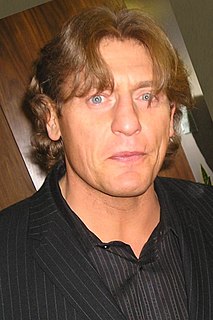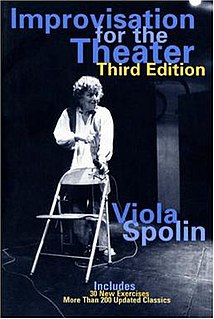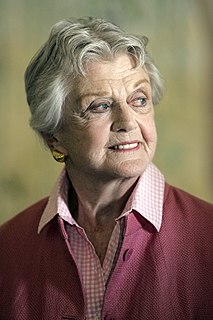Цитата Линн Ноттэдж
Я вижу аудиторию в качестве последнего соавтора. Я думаю, что это какая-то ерунда, когда люди говорят: «Меня не интересует реакция публики». Я такой: «Тогда зачем ты играешь в театре? Ты можешь написать книгу, тогда тебе не нужно смотреть, как реагирует публика». Это живое, дышащее существо.
Связанные цитаты
Я начал шутить пожестче раньше всех. И продюсеры забеспокоились. Они говорили: «Это немного резко, не так ли?» И я говорил: «Давайте просто попробуем и посмотрим, как отреагирует публика». Если им это не нравится, давайте вырежем». И публика захохотала, так что я узнал, что можно делать более жесткий юмор, и людям это нравилось.
Иногда вы знаете, насколько хороши некоторые люди, и тогда вы действительно видите, как они проводят матчи, которые, как вы знаете, они могут иметь перед аудиторией, которая не привыкла к такому. Затем, через несколько минут, публика находится на краю своих мест, просто благодаря мастерству своих способностей.
Я думаю, что одна из важных вещей для меня, хотя многие люди со мной не согласятся, это то, что вы должны быть основаны в театре, чтобы вы понимали, что такое публика, что это за животное и как играть. с этим. Как получать от этого удовольствие, как им сочувствовать, все то, чем является публика. Я не думаю, что вы узнаете это, если не будете заниматься театром.
За столом есть куски, которые разрушают, настолько, что нам не терпится записать это на пленку. А потом никакой реакции. А бывают моменты, когда я не могу правильно прочитать реплику на репетиции, и тогда публика воет на это. Странно то, что я до сих пор не знаю, почему так происходит. Это не то, что потом я думаю: «Теперь я знаю, почему это сработало!»
У софистов была такая идея: забудьте об этой идее о том, что истинно, а что нет — вам нужна риторика; вы хотите быть в состоянии убедить аудиторию и заставить аудиторию думать, что вы умны и круты. А Сократ и Платон, по сути, вся их идея такова: «Чушь. Есть такая вещь, как истина, и дело не только в том, как сказать то, что ты говоришь, чтобы получить хорошую работу или переспать, или что там думают люди. они хотят.
Первое, что я говорю, когда люди спрашивают, в чем разница [между работой на телевидении и в кино], это то, что у фильма есть конец, а у телевидения — нет. Когда я пишу фильм, все, о чем я думаю, это то, где все закончится и как привлечь к этому внимание зрителей. И на телевидении это не может закончиться. Вам нужно, чтобы аудитория вернулась на следующей неделе. Это как бы меняет направление повествования. Но я нахожу это больше как сценарист, чем как режиссер.
Аудитория даст вам знать, если песня общается. Если вы видите, как они засыпают во время песни или если они хлопают в конце песни, значит, они что-то говорят вам о песне. Но у вас может быть хорошая песня, которая не общается. Возможно, это не та песня, которую можно петь людям; возможно, это песня, которую вы поете себе. И некоторые песни, может быть, для небольшой аудитории, а некоторые песни для широкой аудитории. Но аудитория довольно быстро даст вам знать.







































